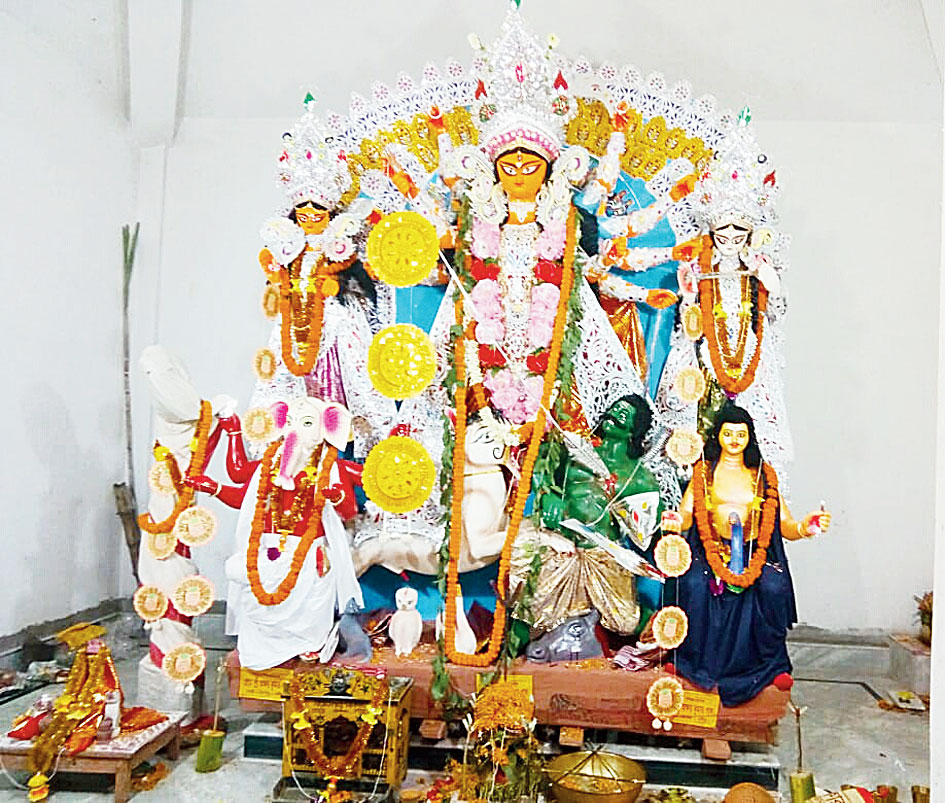Myth has it that a buffalo bled “white blood” while being sacrificed in the early eighteenth century at a family puja in Nadia’s Tehatta.
Since then, the Bhattacharyya family stopped sacrificing the animal at their puja, said to be at least 412 years old, and instead began offering a goat replica made of kheer (concentrated milk) on Ashtami.
The change, according to the organisers, signifies the sacrifice of six enemies (shadripu) — lust, anger, greed, arrogance, attachment and jealousy.
The myth of how animal sacrifice stopped at the Bhattacharyyas’ home spread with time and the puja gradually became a special attraction in Tehatta.
For the descendants of the Bhattacharyya family, though, the buffalo bleeding white blood is not a myth but belief. “It was an eye-opener for our forefathers and they decided to stop the sacrifice,” said Jayanta Bhattacharyya, a postal department employee who now organises the puja.
Bhattacharyya said animal sacrifices in other pujas of the locality were also stopped.
“The incident was a grand narrative. It proved that blood, which leaves stains on everything, can be avoided with love and dedication,” Bhattacharyya added.
The impact of the incident was such that even after over 200 years, the people in the area respect the Bhattacharyyas’ puja. After the incident, then head of the family, Kalidasi Devi, had introduced the symbolic sacrifice of kheer goat replica.
“The tradition was started after Kalidasi Devi had a dream about the sacrifice of goat made of kheer,” said Bhattacharyya. “We have found a hand-written puja
expense account dating back to the 1013 Bengali year, during the reign of emperor Jahangir. This indicates that the puja is in its 412th year,” he added.










